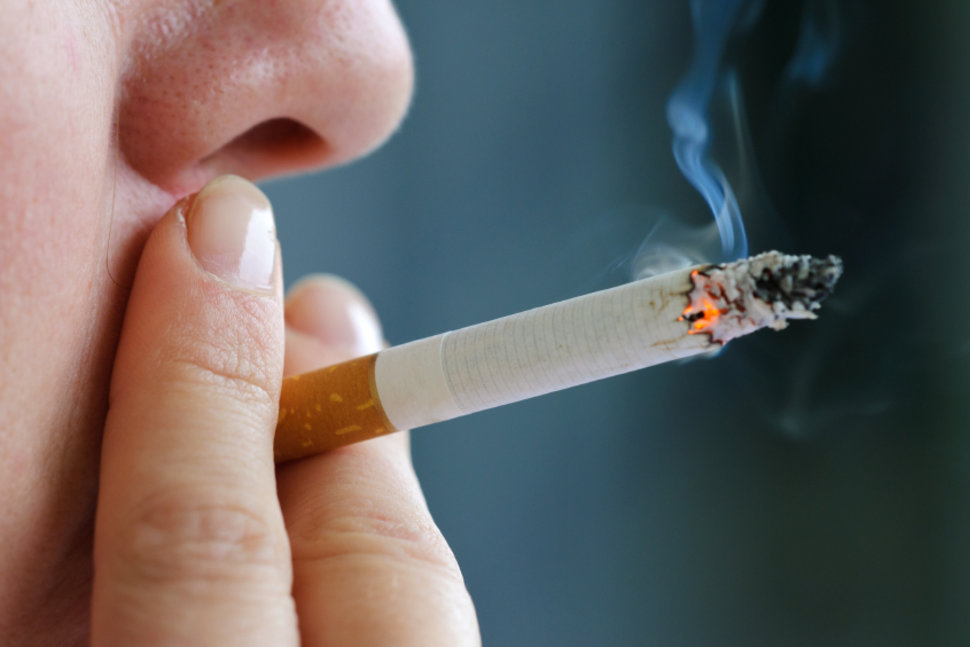Are you a smoker?
Or does someone in your family or office smoke? Whether you are an active or a passive smoker, smoking takes a deadly toll on your health.
Chemical Cocktail
As innocuous as a cigarette may look, it is packed with around 4000 chemicals! From a poisonous alkaloid called nicotine to benzene, formaldehyde, ammonia, acetone, tar, and carbon monoxide, the chemicals in tobacco smoke can and do wreak havoc with the health of millions of people.
If you take a look at the industrial uses of a few of these chemicals, imagine what they can do to the human body!
Hydrogen cyanide, a by-product in cigarette smoke, was used as a genocidal chemical during World War II.
Ammonia is used as a cleaning agent to wash away body grease, fats and oils from clothes. It is also used to clean floors, porcelain and glassware! Ammonia is also used for preparing nitric acid, and is an important part of fertilisers and other ammonium salts.
Prussic acid is used in the dye process, in explosives and while engraving. Several years ago, it was used in insect poisons!
 Diseases
Diseases
There’s no part of the body that does not get affected by smoking:
Heart: Nicotine in tobacco smoke can raise blood pressure and cause blood clots. Carbon monoxide reduces the level of oxygen in the blood and can easily cause cholesterol deposits on the arterial walls. This increases the risk of a heart attack.
Lungs: Smoking can lead to chronic obstructive pulmonary disease (COPD), a silent killer.
Blood Circulation: Arteries and veins become harder, narrower and coated with fats. The result? Ulcers, cold skin and low fitness. Also, blockages, pains and cramps in your veins that can cause heart attacks and strokes.
Bones: Osteoporosis – weak and brittle bones – is another major health risk.
Stomach: Smoking increases the risk of cancers of the bladder, pancreas and kidneys, as well as stomach ulcers.
Throat and Mouth: Long-term smokers invariably suffer from gum disease, stained teeth and bad breath. Smoking also ups the risk of cancers of the gullet, voice box, throat, tongue, and lips.
Eyes: Your peepers aren’t immune either. Cataract, glaucoma, macular degeneration, Graves’ ophthalmopathy and even permanent blindness are some of the likely horrors lurking in that stick.
Skin: Cigarette smoke cuts down the amount of oxygen that nourishes the skin, resulting in premature aging.
Fertility and Reproduction: Smoking can increase the risk of impotence by reducing sperm count and damaging sperm. It could also lead to testicular cancer. In women, smoke components can land up in the ovarian follicles, reducing the number of eggs being produced and therefore, the chances of conception.
The Mind
When you draw on a ciggie, the nicotine in it rapidly induces a ‘high’, only to drop within 20 minutes, leaving you craving for more. Other chemicals like carbon monoxide and acetaldehyde have a calming, sedative effect, defusing feelings of anger or tension. For many, the very act of lighting up becomes a comforting ritual to counteract boredom or feelings of futility. Sooner or later, the addictive properties of nicotine take over; in its absence, the sense of unease that overcomes the smoker forces him to succumb and light up.
Passive Smoking
Sadly, people around the smoker become ‘second-hand smokers’ who are equally susceptible to all smoking risks. Recent research says even ‘third-hand smoke’ or what lingers on in ashtrays and people’s hair has deadly effects.
Could any fiction writer come up with a worse tale of horror?